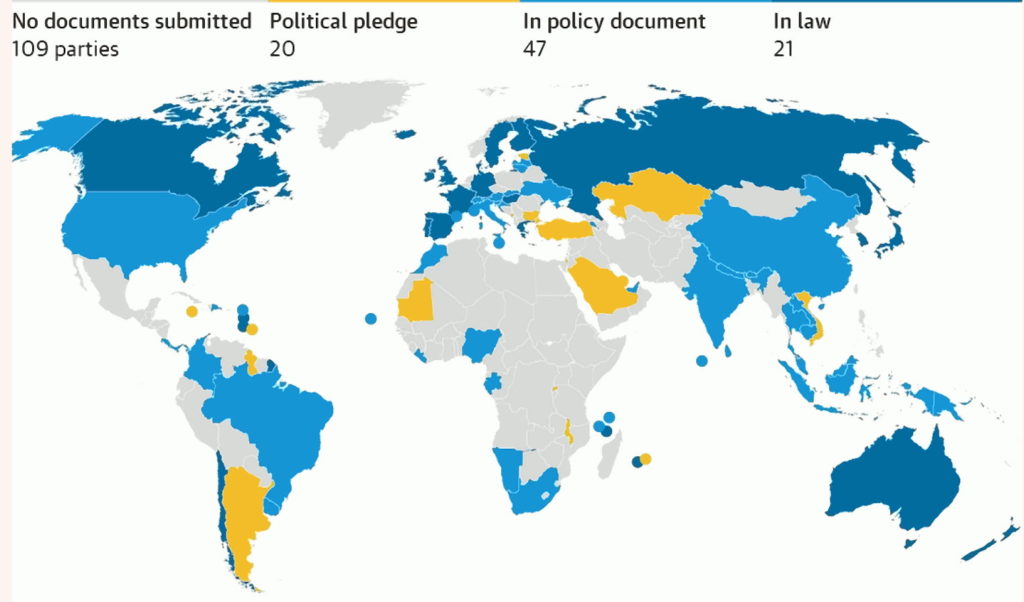One of the great successes of the 20th century was the reduction in global poverty. The hope for many is that the 21st century will see even more people rise out of extreme poverty and into middle-class luxury. But, as the human population grows, the related excess consumption that comes with higher economic status will be a climate disaster.
The West has no right to lecture others on the dangers of consumption, of course. But we need to be realistic: unfettered economic and population growth isn’t possible. One has to give. Since we’re unlikely to curb our various appetites, reducing the population is a more achievable pathway.
The Wrong Ways to Reduce

Population reduction has been tried in ways that have been, at best, ill-considered and, at worst, actively evil. There’s a right way to pursue degrowth, but there are many, many wrong ways. From genocide to eugenics, multiple regimes have tried reducing (or eradicating) specific populations for various ideological reasons, often white supremacy. Targeted, forced population reduction is abhorrent.
Alternatively, some nations have attempted to reduce their populations to address serious problems, not for prejudicial reasons. China’s “one-child policy” is probably the most well-known such effort, and it’s perhaps the perfect example of how not to implement population reduction.
The aftereffects of that policy, which only allowed one child per couple and resulted in parents favoring male children over female, have proven disastrous. There is an entire generation of Chinese men who can’t find mates, ensuring that birth rates remain in decline, even with China adopting a three-child policy. Beyond that, the sudden population drop has left fewer young people to pay into a pension system supporting longer-living retirees.
Japan’s population has likewise been in free fall for over a decade, causing the GDP to crater. Unlike China, there isn’t a specific policy to blame. The cause of the decline is still in dispute, but one theory suggests a lack of good jobs means people can’t settle down to have families. Depopulation is a self-sustaining cycle.
It’s not just Asia. Many European countries have seen their fertility rates drop below “replacement” levels. The US is also likely only a few years away from a population collapse like Japan.
Rapid population degrowth is antithetical to a growing economy. Every advocate for population reduction has to reckon with that. Degrowth is going to hurt, especially when retirement funds face shortfalls. Increased immigration can be a salve for individual nations, but inevitably, if the world population shrinks, so will the global economy. There’s no getting around these realities.
The Right Way to Reduce
There’s also no getting around climate collapse and its looming devastation. A healthy pension won’t mean anything if the planet is actively annihilating us. We must get serious about degrowth. We have to go on a diet.

There’s also no getting around climate collapse and its looming devastation. A healthy pension won’t mean anything if the planet is actively annihilating us. We must get serious about degrowth. We have to go on a diet.
Rethinking Capitalism

That’s especially true if our goal is to increase the standard of living for people worldwide—a noble effort, to be sure, but one that comes with consequences.
As Dasgupta has written, “The universal achievement of contemporary lifestyles in high-income countries would require resources several times the sustainable level.”
Reducing wealth inequality is a worthy goal, but millions more people owning cars, TVs, and cell phones will worsen the climate crisis, no matter how many “green” products corporations sell us. All the PR and greenwashing tricks in the world won’t change the simple math that more people equal more stuff.
We can’t innovate our way out of climate disaster if we aren’t simultaneously reducing. It won’t – and shouldn’t be – an overnight change, but we need to aim for degrowth. And if that means a financial crunch, so be it. Better some economic (de)growing pains than a total climate collapse.
We can have a smaller population who share a more modest but still robust standard of living, or we can continue our expansion – both in population and the wealth gap – and watch millions, if not billions, of people suffer.
Those are our only two options, and we’re running out of time to choose.

